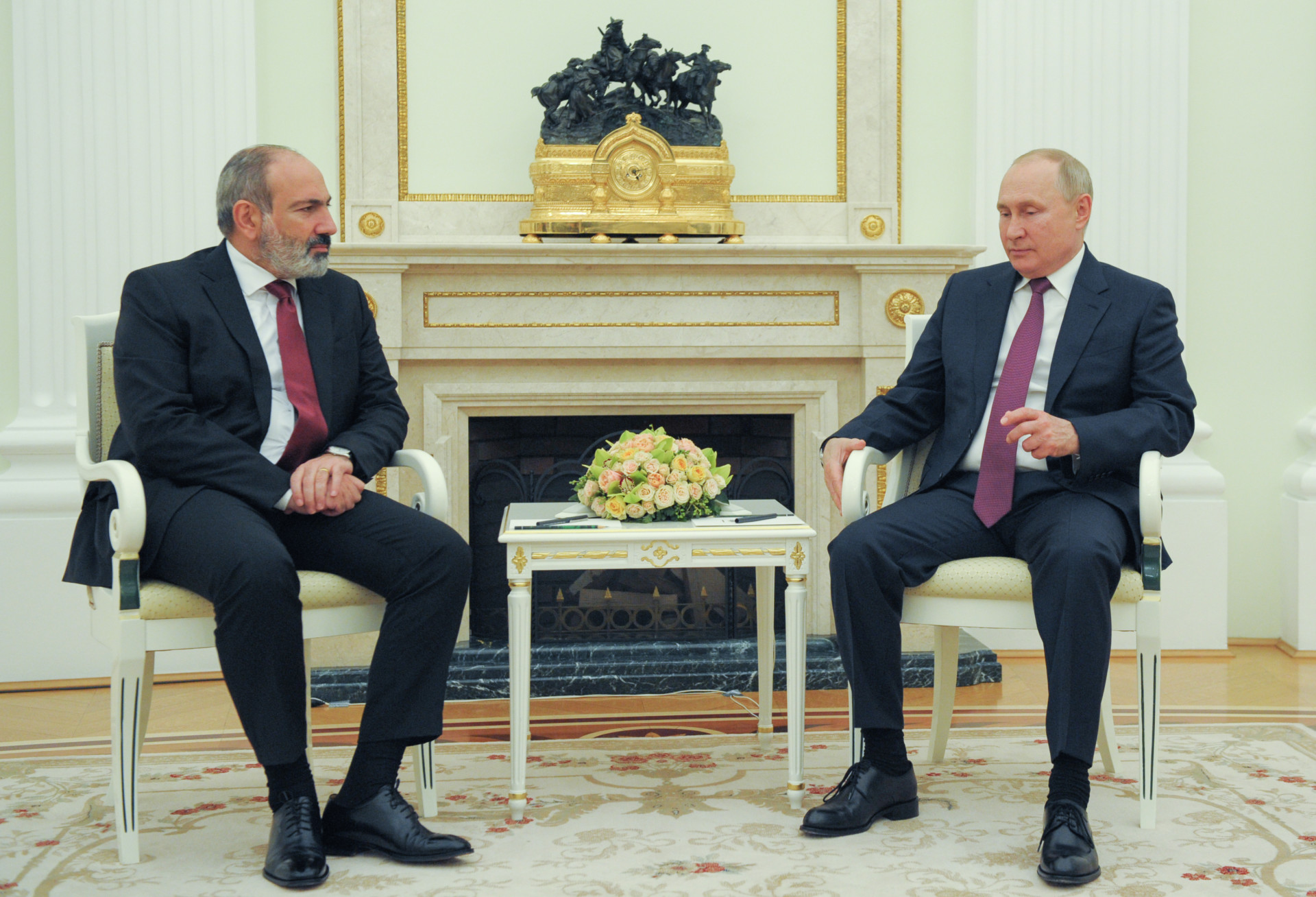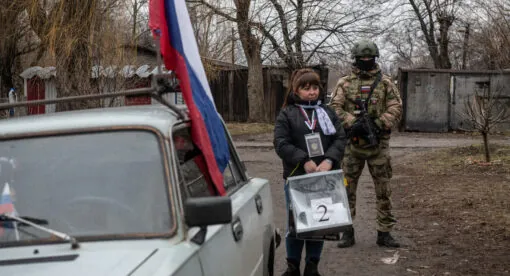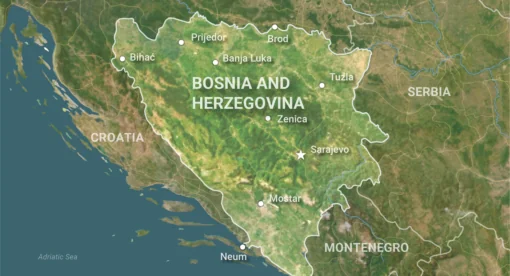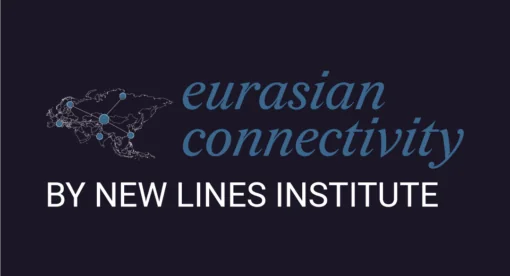Statements and actions indicate that Armenia and Turkey are interested in improving relations – possibly even opening their shared border, which would be a game-changer for the South Caucasus. However, Azerbaijan’s role in Turkey’s decision-making process regarding Armenia, along with outside players’ desire to protect their own interests in the region, will make rapprochement difficult.
Armenia and Turkey’s relationship is typically characterized by mutual distrust and animosity. However, the two countries recently expressed intentions to mend bilateral relations. On Aug. 27, Armenian Prime Minister Nikol Pashinyan argued for reconciliation with Turkey “without preconditions.” Turkish politicians hinted at the same idea. Beyond the rhetoric, Armenia has made some concrete moves signaling a willingness to reach a meaningful understanding with Turkey. For instance, Armenia has allowed Turkish Airlines to fly to Baku directly over Armenia and allowed Azerbaijan to use its airspace. Yerevan also unveiled a five-year government action plan stipulating its willingness to make efforts to normalize relations with Ankara.
The timing of these efforts is crucial. The results of the second Nagorno-Karabakh war have created circumstances that would allow Armenia and Turkey to overcome obstacles that previously prevented them from making progress toward normalization. After its defeat, Armenia is seeing that it is impossible to rival Azerbaijan while under a blockade and is intent to act beyond its historical grievances against Turkey.
Exactly what the envisioned normalization could look like is still unclear. Perhaps the countries will discuss establishing some level of diplomatic relations and potentially opening the 300-kilometer (186-mile) border between Turkey and Armenia – a development that would have powerful geopolitical implications for the South Caucasus. Much will depend on the political willingness of the leaders involved and the blowback from nationalist groups or influence of other geopolitical actors, such as Azerbaijan and Russia. No meaningful Armenia-Turkey rapprochement will occur without Baku and Moscow’s involvement. Indeed, the Turkish Foreign Minister Mevlüt Çavuşoğlu stated on Oct. 28 that Ankara consults Baku regarding the mending of relations with Yerevan. Baku’s influence and Russia’s interests in the region make the full and quick restoration of ties unlikely.
Favorable Signs
Ankara has expressed a willingness to improve bilateral relations with Armenia over past decades. The biggest effort came in 2009, when the Zurich Protocols were signed, leading to a brief thaw between the two. Though eventually unsuccessful (Baku intervened to put a de facto end to the deal in 2009, and on March 1, 2018, Armenia announced the formal cancellation of the protocols), Ankara has often emphasized the need for improved ties with Yerevan.
The more recent developments between Turkey and Armenia have been subtle, but the frequency of positive statements nevertheless indicates that a trend is emerging. After its defeat in the second Nagorno-Karabakh war, Armenia is taking a more pragmatic approach in its foreign policy. In Yerevan’s calculus, the improvement of relations with Ankara could deprive Baku of some advantages. The Azerbaijan-Turkey alliance will remain, but its growth could slow if Armenia establishes better relations with Turkey. Still, Baku might be less hostile to the rapprochement because of Armenia’s slow but steady cooperation in matters of regional infrastructure.
For example, the railway revival project in the South Caucasus finally seems to be moving forward. During a visit to Moscow on Oct. 15, Pashinyan expressed openness to a railway from Azerbaijan to the Nakhchivan exclave and further to Turkey via Armenia’s southernmost region of Syunik. Some reports also hinted at new agreements on regional connectivity and border demarcation to be signed in Moscow, though their signing dates are unknown, betraying the fragility of Armenia-Azerbaijan talks. If the two sides agree on the railway project, however, this development would not be one-way; Armenia would get a railway link to Russia and Iran through Azerbaijan. This seems to be a good bargain for Baku and especially for Yerevan, though domestically it will be hard to sell to Pashinyan’s opposition.
A potential byproduct of improved relations between Ankara and Yerevan – the opening of the Turkish-Armenian border – could be a game-changer that equates to opening up the entire South Caucasus region. Armenia will have a new market for its products and businesses. In the longer term, the opening will allow Yerevan to diversify its economy and therefore lessen its dependence on Russia and the fragile route that goes through Georgia. Ankara would also benefit by gaining another route to penetrate the region. Such an opening would also have implications for the balance of power in the region.
Implications for Russia
Though Russia expressed readiness to help Armenia and Turkey normalize their relations, saying that such a change would boost peace and stability in the region, it is unclear how Russia would benefit from the rapprochement. First, normalization would mean economic diversification and expanded connectivity, both of which directly hit at Russian influence in the South Caucasus. The closed borders have always enabled Russia to play a major role in the region by providing connectivity.
One possible benefit for Russia is that the Armenia-Turkey connection would allow Russia to have a direct land link with Turkey via Azerbaijan and Armenia. However, meaningful economic benefits are doubtful, as the route is long and could remain unreliable because of distrust between Armenia and Azerbaijan. Moreover, for Russia, the Black Sea will remain a primary route for trade with Turkey because of its shortness, reliability, and low cost.
In voicing support for the normalization of relations between Turkey and Armenia, Moscow could also be considering another factor: Turkey’s growing influence.
Turkey as Disruptor
Arguably, the biggest winner if Ankara and Yerevan can achieve normalization would be Turkey. While the West is rethinking its position in the wider Black Sea region, Turkey has been actively involved in the South Caucasus both by choice and by compulsion. It has achieved significant results by disrupting regional status quos around the Nagorno-Karabakh conflict and the South Caucasus’ limited connectivity. This started in the 1990s, when Turkey worked with Georgia and Azerbaijan to undermine Russia’s centuries-long monopoly on the region’s railway and road connections. Countering Russia-sponsored lines running north and south, Turkey pioneered east-west connectivity.
To further its strategy for opening up the South Caucasus, Turkey is using Armenia’s defeat in the second Nagorno-Karabakh war to push for greater connectivity with Azerbaijan beyond the route that runs through Georgia. Armenia is critical here. As the defeated side, Yerevan is taking a more realistic view of the need to break the blockade it has been under. Azerbaijan has regained control over much of the territory the Armenians controlled militarily, thus removing a major sticking point for potential Armenian-Turkish reconciliation, given Baku’s influence over Turkey on Armenian matters.
Turkey’s moves to increase connectivity with Armenia would weaken Iran’s position, too. An opened border with Turkey will diminish Armenia’s dependence on Iran for imports and will increase chances for a corridor to Azerbaijan. The rail corridor through Armenia’s Syunik province will undermine Tehran, which is increasingly suspicious about Ankara’s influence in the South Caucasus. This ties into recent tensions between Azerbaijan and Iran over transit routes, detained Iranian trucks, military drills held near Azerbaijan’s borders, and, most of all, increased Turkish influence.
Remaining Difficulties
The results of the second Nagorno-Karabakh war present Turkey and Armenia with an opportunity to pursue rapprochement. Yet ingrained distrust between the two sides, nationalist groups in both countries, and Azerbaijan’s desire to protect its own interests could scupper Ankara and Yerevan’s attempts. It is also unclear whether Russia would offer long-term support for the countries’ increased connectivity; not all of the proposed projects fit into Moscow’s interests in the South Caucasus, and Russia is suspected of not being wholeheartedly interested in facilitating long-term peace in the region. This makes the process of seeking normalization fraught with problems.
Moreover, the Western absence from the post-Karabakh war processes adds pressure. The United States and European Union outwardly express hopes for the normalization of ties between Armenia and Turkey and welcome the revival of railways, but collectively the West is distanced from the process, leaving matters in the hands of Eurasian powers.
Illiberal peacemaking could produce immediate results, but is unlikely to have a concrete basis befitting all interested parties. Thus it is likely that though we will be seeing continued diplomatic activity from both Ankara and Yerevan, concrete rapprochement will nevertheless be hard to achieve.
Emil Avdaliani is a professor at European University and the Director of Middle East Studies at Georgian think tank Geocase. Before joining Geocase, Emil worked for various consulting companies and is currently writing a book about great power competition in the South Caucasus. He tweets at @emilavdaliani.
The views expressed in this article are those of the author and not an official policy or position of the New Lines Institute.







